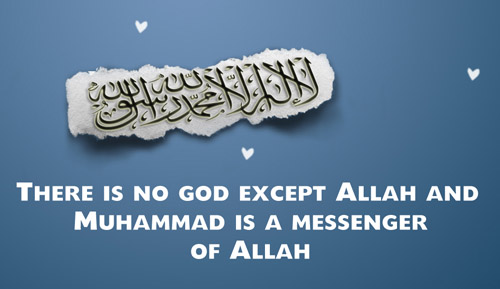Your desire to know what Allah Almighty loves so that you can get closer and closer to your Creator.
This is a sign of sincere love.
Anyone who loves sincerely will want to know more about what his/her beloved loves so that they can do it and get closer to him/her.
In these regards, Allah’s direct speech in the Quran and the Prophet’s hadiths tell us about what Allah loves.
Verses from the Quran on What Allah Loves
Those Who Purify Themselves
“Indeed, Allah loves those who are constantly repentant and loves those who purify themselves.”(Quran 2:222)
“Do not stand [for prayer] within it – ever. A mosque founded on righteousness from the first day is more worthy for you to stand in. Within it are men who love to purify themselves; and Allah loves those who purify themselves.” (Quran 9:108)
The Doers of Good
“And spend in the way of Allah and do not throw [yourselves] with your [own] hands into destruction [by refraining]. And do good; indeed, Allah loves the doers of good.” (Quran 2:195)
“So Allah gave them the reward of this world and the good reward of the Hereafter. And Allah loves the doers of good.” (Quran 3:148)
“There is not upon those who believe and do righteousness [any] blame concerning what they have eaten [in the past] if they [now] fear Allah and believe and do righteous deeds, and then fear Allah and believe, and then fear Allah and do good; and Allah loves the doers of good.” (Quran 5:93)
“And hasten to forgiveness from your Lord and a garden as wide as the heavens and earth, prepared for the righteous who spend [in the cause of Allah] during ease and hardship and who restrain anger and who pardon the people – and Allah loves the doers of good.” (Quran 3:133-134)
Those Who Are Just
“[They are] avid listeners to falsehood, devourers of [what is] unlawful. So if they come to you, [O Muhammad], judge between them or turn away from them. And if you turn away from them – never will they harm you at all. And if you judge, judge between them with justice. Indeed, Allah loves those who act justly.” (Quran 5:42)
“And if two factions among the believers should fight, then make settlement between the two. But if one of them oppresses the other, then fight against the one that oppresses until it returns to the ordinance of Allah. And if it returns, then make settlement between them in justice and act justly. Indeed, Allah loves those who act justly.” (Quran 49:9)
“Allah does not forbid you from those who do not fight you because of religion and do not expel you from your homes – from being righteous toward them and acting justly toward them. Indeed, Allah loves those who act justly.” (Quran 60:8)
Those Who Fear Allah And Obey His Messenger
“Say, [O Muhammad], ‘If you should love Allah, then follow me, [so] Allah will love you and forgive you your sins. And Allah is Forgiving and Merciful.'” (Quran 3:31)
“But yes, whoever fulfills his commitment and fears Allah – then indeed, Allah loves al-mutaqeen (the God-conscious/those who fear Him).” (Quran 3:76)
“How can there be for the polytheists a treaty in the sight of Allah and with His Messenger, except for those with whom you made a treaty at al-Masjid al-Haram? So as long as they are upright toward you, be upright toward them. Indeed, Allah loves the righteous [who fear Him].” (Quran 9:7)
Those Who Trust in Him and Are Steadfast
“And how many a prophet [fought and] with him fought many religious scholars. But they never lost assurance due to what afflicted them in the cause of Allah, nor did they weaken or submit. And Allah loves the steadfast.“(Quran 3:146)
“So by mercy from Allah, [O Muhammad], you were lenient with them. And if you had been rude [in speech] and harsh in heart, they would have disbanded from about you. So pardon them and ask forgiveness for them and consult them in the matter. And when you have decided, then rely upon Allah. Indeed, Allah loves those who rely [upon Him].” (Quran 3:159)
“O you who have believed, whoever of you should revert from his religion – Allah will bring forth [in place of them] a people He will love and who will love Him [who are] humble toward the believers, powerful against the disbelievers; they strive in the cause of Allah and do not fear the blame of a critic. That is the favor of Allah; He bestows it upon whom He wills. And Allah is all-Encompassing and Knowing.” (Quran 5:54)
Traditions from the Sunnah, illustrating what Allah loves
Messenger of Allah (Peace be upon him-PBUH)) said that Allah the Exalted has said:
The most beloved thing with which My slave comes nearer to Me is what I have enjoined upon him; and My slave keeps on coming closer to Me through performing Nawafil (voluntary prayers or doing extra deeds besides what is obligatory) until I love him, (so much so that) I become his hearing with which he hears, and his sight with which he sees, and his hand with which he strikes, and his leg with which he walks; and if he asks Me something, I will surely give him, and if he seeks My Protection (refuge), I will surely protect him. (hadith qudsi Al-Bukhari)
Aishah (May Allah be pleased with her) reported that the Messenger of Allah (peace be upon him) said:
“Allah is The Forbearer and loves forbearance in all matters.” (Al-Bukhari and Muslim)
We ask Allah to make you among the patient, the steadfast, the doers of good, those who act justly, those who purify themselves and repent regularly, those who are righteous/God-fearing, God-conscious, those who do what their Creator asked them to do and refrain from what He prohibited them from doing- and those who earn His Love and closeness in this world and the eternal hereafter.
Ameen!
Salam
(From Ask About Islam’s archives)
About Dina Mohamed Basiony


 Karma is a Sanskrit word meaning actions or deeds, and a spiritual concept in several Eastern religions, primarily Hinduism and Buddhism. Generally speaking, it is the principle of retributive justice determining a person's state in this life and in his reincarnations. Kar means the physicality of action and ma means producing or creating. Thus, karma is that which is created or produced by one's physical organs. However, karma as a concept does not mean only physical actions, because mental actions also create karma.
Karma is a Sanskrit word meaning actions or deeds, and a spiritual concept in several Eastern religions, primarily Hinduism and Buddhism. Generally speaking, it is the principle of retributive justice determining a person's state in this life and in his reincarnations. Kar means the physicality of action and ma means producing or creating. Thus, karma is that which is created or produced by one's physical organs. However, karma as a concept does not mean only physical actions, because mental actions also create karma.


